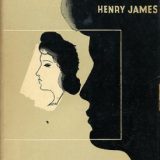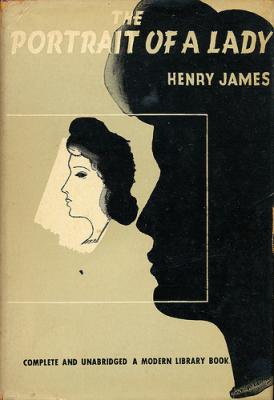The Portrait of a Lady – Henry James – 1880
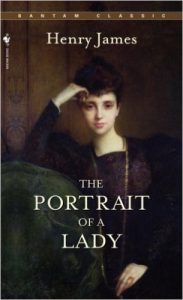
The following is a compilation of discussions and reviews from the previous version of our website. We hope you enjoy these older deliberations. Just beware, there may be spoilers in here. To add your own review or remarks, please scroll down to the comment box. — ReadLit Team
Posted by guillermo maynez on 26/10/2015, 11:48:37
My guess is that you all have read this novel. I hadn’t, until last week. I enjoyed it immensely, it had been some time since my last James and now I remember why I like his books so much. The ending was delightfully frustrating; I knew he wouldn’t give a happy one, but the way in which he decides to finish it is tantalizing without hope: we will never know what happened to Isabel.
What’s your opinion of this opinion of this one?
~
Posted by Steven on 28/10/2015, 9:32:41, in reply to “The Portrait of a Lady”
Yes, I read The Portrait of a Lady, and it is among my favorites.
I read an extensive review recently written by a British reader. He rates The Portrait of a Lady as “excellent but not great,” and says James “can sound snobbish and a little prissy at times.” He says James is a bit of a misogynist because his female characters are either weak or wicked, and the only “good and upstanding” characters in the novel are male.
It’s also interesting that this English reviewer says nothing about Henry James’ representation of American innocence and optimism being corrupted by jaundiced and world-weary Europeans, which is at the crux of much of James’ writing.
My memory of the novel isn’t fresh, but I’m sure I largely wouldn’t have agreed with this reviewer–I’m bringing it up for the sake of talking points.
Guillermo, how did you, as a “neutral” observer, see the contrast between American and European national characteristics? Or did you not see this as a theme in this novel?
~
Posted by Sterling on 28/10/2015, 23:02:03, in reply to “Re: The Portrait of a Lady”
I remember that I liked Portrait of a Lady, but it’s been too long since I read it to really comment. I do think that the characterization of James as a misogynist because his female characters are “weak” or “wicked” is unfair.
In The Golden Bowl, there is a perfect balance of sympathetic/unsympathetic in all four main characters: Maggie and Charlotte are neither weak nor one-dimensionally “wicked,” and certainly neither more nor less “good and upstanding” than Adam or the Prince.
In The Wings of the Dove, Kate is more or less “wicked,” true, but Densher is no better. Milly, on the other hand, is one of the most “good and upstanding” characters in all of James. She’s not weak, only ill. And she ultimately triumphs over Kate and Denser posthumously, without a loss of “goodness.”
And the most memorable female character in The Ambassadors, Maria Gostrey, is delightful.
PS – What in the world could “excellent but not great” possibly mean? I think your British reader is a bit facile. “Clever but not deep,” perhaps? :^)
(In fairness, maybe the American vs. European themes have less resonance if you’re actually a European. Yes, Guillermo, as a “neutral” observer, how does that theme strike you?)
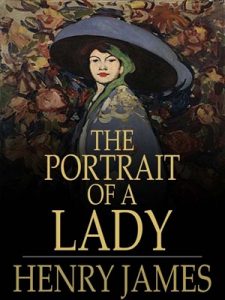
Posted by guillermo maynez on 29/10/2015, 11:47:16, in reply to “Re: The Portrait of a Lady”
It seems that the “American vs. European character” was THE theme for James. It certainly is a very relevant subject, since it studies the cultural evolution of two branches of originally European culture. James being a very intelligent and cultivated person, the analysis is far more nuanced than the simple “innocent, puritan americans vs. wicked, perverse Europeans”, although inevitably the main portrait (and not just “of a lady”) tends to that direction. “The Europeans” is a short novel where a couple of brother and sister, children of an American woman and a European nobleman, raised in Europe, come to New England in search of relatives and money. They are certainly far more worldly and unscrupulous than their cousins and so the image is strongly conveyed. A similar thing happens in “The Ambassadors”, where Strether falls in love with Paris and European liberality in habits, as compared with the strict uptightness of Massachussetts and its social milieu. “Live all you can, it’s a mistake not to” is the now-commonplace from the novel, and it seems to imply that Americans of that time are too repressed and that, actually, Parisian wickedness is much more fun than Sunday school. However, in “Daisy Miller” thing seem to be upside down: the eponymous heroine is SO innocent that she incurs the rage of envious and mean people who take her for a ##### and not for a free spirit (and this in Italy, of all places!).
Now, in my personal experience interacting with both Americans and Europeans, and although more than a century has passed since James wrote (Washington Square certainly doesn’t look a lot like it used to do when the Jameses lived there), I think there is still much truth in James’s portrait of both people. I’ll try to explain myself, and please bear in mind that these are broad generalizations, necessarily: Americans like to have wild youths, coming to Cancun for spring break, getting drunk and drugged to oblivion and experimenting with group sex and all that. But then, at some point in their lives, they marry the right girl or guy, think a lot about their future pension, work, save, invest and then fondly (and a little embarrassed) remember their wild times. Europeans, on the contrary, are usually much more eccentric, including the Brits of course, strange, dissipated, and less uptight. Of course, there are the European investment bankers and the Americans who stay hippie until their deaths, but somehow there is this general sense still that Americans tend to be more righteous than Europeans.
Perhaps this European cynicism vs. American idealism has its roots in the immense difference in history, bot in quantitative and qualitative terms: Europeans have seen empires, plagues, and wars pass through their homes innumerable times, while Americans (as an identity) arrived squeaky clean (and quakers, etc.), have suffered no titled aristocracy (although the Bushes and Clintons are becoming just that) nor crazy kings who stay forever on the throne, have had no need to behead Heads of State, have not seen their population cut by a third thanks to nasty fleas on rats’ skins, and have suffered no major wars (except for an internecine, home-made one) and no aerial bombardments to turn cities into dust. And so on…
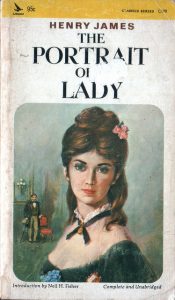
Posted by Joffre on 29/10/2015, 22:02:53, in reply to “Re: The Portrait of a Lady”
It must be about a year now since I posted about Portrait of a Lady. That was my third reading of it, and I found it extraordinarily fine. I hadn’t considered it a favourite before, but I do now.
I liked it so well then that I tried a James novel I’d never read before, The Bostonians, which I liked but not nearly as well. I also formed a vague intention to have another go at The Wings of the Dove.
I suppose if I were ranking the James novels I’ve read, it would go something like this:
Portrait of a Lady
Washington Square
Turn of the Screw
The Ambassadors
The Bostonians
Daisy Miller
The Wings of the Dove
There’s not much between some of those, and I remember very little about Daisy Miller. I only it above WotD now because it’s shorter, and I do remember my last read of WotD as a chore.
~
Posted by Sterling on 30/10/2015, 10:38:52, in reply to “Re: The Portrait of a Lady”
As always, these things are a matter of taste. Though definitely a “chore,” I much prefer the rewards and depth of late James, aside from The Golden Bowl, which I found something of a disappointment. However, it has risen some in my memory because it made a deeper impression than the early or middle James I’ve read. This is how I would rank the James that I can actually recall (many years ago I read some others that I’ve totally forgotten, such as Daisy Miller). So, my ranking would be as follows:
The Ambassadors
The Wings of the Dove
The Turn of the Screw
What Maisie Knew
The Golden Bowl
The Awkward Age
Portrait of a Lady
Washington Square
~
Your comments are very welcome. Please sign in and use the contribute box below to write a review or to add your comments. You may also enjoy our Talk Literature page for active discussions.


